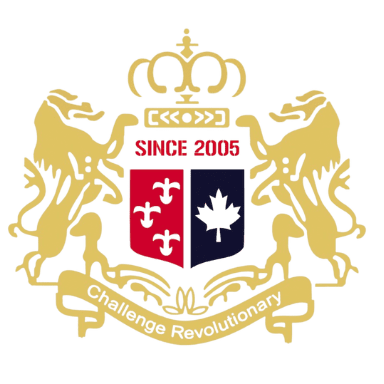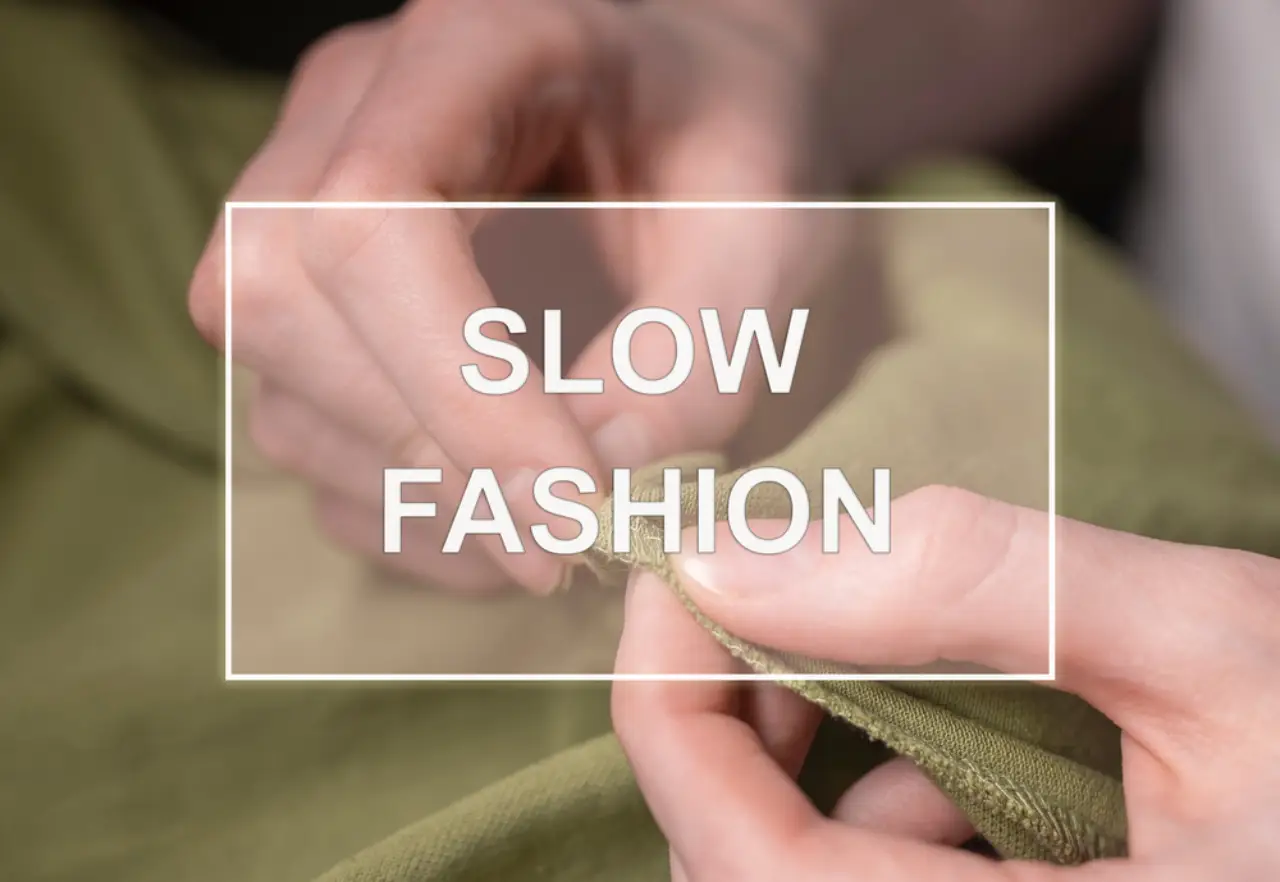In a world where trends come and go in the blink of an eye, Slow Fashion stands as a beacon of conscious consumption and sustainable practices. Unlike its fast fashion counterpart that thrives on rapid production and disposable clothing, Slow Fashion embraces a philosophy rooted in quality, ethics, and longevity. It’s a movement that encourages us to pause, reflect, and make thoughtful choices about what we wear, how it’s made, and its impact on the environment and society.
At its core, Slow Fashion is about shifting away from the culture of excess and instant gratification towards a more mindful and holistic approach to dressing. It values craftsmanship, durability, and timeless style over fleeting trends and mass-produced garments. By championing ethical production, sustainable materials, and fair labor practices, Slow Fashion seeks to create a more sustainable and equitable future for the fashion industry and beyond.
What Is Slow Fashion?
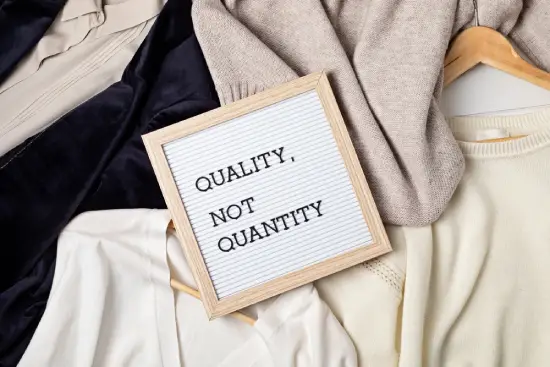
Slow Fashion is more than just a trend; it’s a movement that advocates for mindful consumption and production of clothing. Unlike fast fashion, which prioritizes mass production and quick turnover of trendy items, it emphasizes quality, sustainability, and ethical practices throughout the supply chain. It encourages consumers to buy less but invest in timeless pieces that are durable, versatile, and ethically made.
The core principles of Slow Fashion revolve around:
- Quality Over Quantity: Choosing well-made garments that last longer and withstand trends.
- Ethical Production: Ensuring fair wages, safe working conditions, and respect for artisans and workers.
- Sustainable Materials: Using eco-friendly fabrics, reducing waste, and embracing circular fashion practices.
- Local and Artisanal: Supporting local craftsmanship and preserving traditional techniques.
Slow Fashion is not just a trend; it’s a lifestyle that encourages us to cherish and respect the clothing we wear. It invites us to build a wardrobe filled with pieces that tell stories, hold memories, and reflect our values. By supporting local artisans, choosing eco-friendly materials, and embracing slow and thoughtful consumption, Slow Fashion empowers us to make a positive impact on the world while expressing our unique style and identity.
The Start Of Slow Fashion
The roots of Slow Fashion can be traced back to a growing awareness and concern about the negative impacts of fast fashion on both people and the planet. As the 21st century unfolded, voices advocating for sustainable practices in the fashion industry began to amplify. Designers, activists, and conscious consumers started questioning the prevailing model of mass production, exploitative labor practices, and environmental degradation inherent in fast fashion.
This period marked a turning point as Slow Fashion emerged as a viable alternative, emphasizing quality craftsmanship, ethical production methods, and a deeper connection to clothing. It wasn’t just about wearing garments; it was about understanding the stories behind them, valuing the skills of artisans, and recognizing the environmental cost of each piece of clothing. The start of Slow Fashion represented a shift towards a more mindful and intentional approach to dressing, sparking conversations and actions that continue to shape the industry today.
How is Slow Fashion Related To Sustainable Fashion & Ethical Fashion?
Slow Fashion, Sustainable Fashion, and Ethical Fashion are interconnected movements that prioritize responsible practices in the fashion industry. Let’s explore their distinct yet complementary aspects.
Slow Fashion
It revolves around the idea of quality over quantity, urging consumers to make mindful choices and invest in durable, timeless pieces. It promotes a deeper connection with clothing, advocating for craftsmanship, versatility, and a reduced reliance on fast-paced trends.
Sustainable Fashion
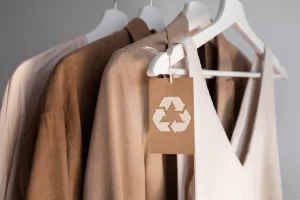
Sustainable Fashion is dedicated to minimizing environmental impact by using eco-friendly materials, adopting sustainable production methods, and embracing circular fashion practices. It focuses on reducing waste, conserving resources, and promoting a more sustainable fashion ecosystem.
Ethical Fashion
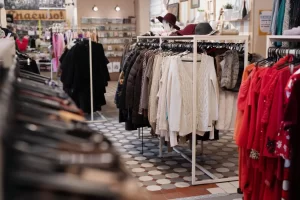
Ethical Fashion prioritizes fair treatment of workers, ensuring fair wages, safe working conditions, and respect for human rights throughout the supply chain. It champions transparency, accountability, and social responsibility, aiming to create a fashion industry that values ethics, equity, and dignity for all.
Slow Fashion Becomes A Movement
Slow Fashion emerged as a response to the detrimental effects of fast fashion, which dominated the clothing industry with its rapid production cycles, cheap labor, and disposable garments. Many clothing manufacturers and clothing exporter played a role in this fast fashion model. The movement gained traction in the early 2000s, spurred by growing concerns about environmental sustainability, ethical labor practices, and consumerism’s impact on society.
At its core, Slow Fashion advocates for a shift from quantity to quality, encouraging consumers to prioritize well-crafted, timeless pieces over trendy, short-lived fashion items. This approach aligns with sustainable fashion practices by promoting garments made from eco-friendly materials, produced using methods that minimize environmental harm, and designed to withstand the test of time. Slow Fashion also intersects with ethical fashion by emphasizing fair wages, safe working conditions, and respect for artisanal skills and cultural heritage. This shift highlights the contrast in the debate of fast fashion vs sustainable fashion.
What sets Slow Fashion apart is its holistic view of clothing as more than just a commodity—it’s a reflection of values, identity, and conscious living. By fostering a deeper connection between consumers and their wardrobes, Slow Fashion encourages mindful consumption, encourages creativity in styling, and fosters a sense of appreciation for the craftsmanship and stories behind each garment. As the movement continues to gain momentum, it’s reshaping the fashion industry’s narrative, promoting sustainability, ethics, and individual expression as key pillars of modern fashion. This ongoing evolution involves clothing manufacturers and clothing exporter who are increasingly aligning with sustainable and ethical practices, further emphasizing the fast fashion vs sustainable fashion debate.
How Can One Be A Part Of The Slow Movement
Embracing the Slow Movement in fashion involves adopting a mindset that values quality, sustainability, and ethical practices. Here are some ways to become an active participant in the Slow Fashion movement:
- Mindful Consumption: Prioritize quality over quantity by investing in well-made, versatile pieces from reputable clothing manufacturers that stand the test of time.
- Support Sustainable Brands: Choose clothing from clothing exporter that prioritize sustainable materials and ethical production practices over the allure of fast fashion trends.
- Second-Hand and Vintage: Explore thrift stores, consignment shops, and online platforms for pre-loved fashion items, reducing waste and giving new life to clothing while making an informed choice between fast fashion and sustainable fashion.
- DIY and Upcycling: Get creative by repairing, altering, or upcycling existing clothing to extend its lifespan and reduce your environmental footprint, contributing positively to the clothing manufacturer industries.
- Educate Yourself: Learn about the impact of fast fashion on the environment and society, stay informed about sustainable fashion practices, and support initiatives that promote ethical fashion standards.
Slow Fashion Brands Around the Globe
Slow Fashion is not just a concept but a reality embraced by numerous brands worldwide. These brands prioritize sustainability, ethical production, and quality craftsmanship, making them leaders in the Slow Fashion movement.
ASKET
ASKET is a Swedish brand renowned for its commitment to timeless essentials and sustainable practices. They prioritize quality over quantity, offering well-crafted garments made from premium materials sourced responsibly. ASKET’s minimalist approach to design aligns with their philosophy of reducing waste and promoting long-lasting, versatile pieces that transcend trends.
The Jodi Life
The Jodi Life is a reflection of India’s rich cultural heritage fused with contemporary aesthetics. They showcase traditional Indian textiles and artisanal techniques in modern silhouettes, creating unique pieces that celebrate craftsmanship and sustainability. The brand emphasizes ethical sourcing, fair labor practices, and a deep respect for local artisans and their skills.
TWOTHIRDS
TWOTHIRDS is more than just a surf brand; it’s a beacon of sustainability in the ocean-loving community. They blend eco-friendly materials with functional designs, catering to surfers and outdoor enthusiasts while championing marine conservation. TWOTHIRDS’ commitment to ethical production and environmental stewardship sets them apart as leaders in sustainable fashion.
Maati
Maati embodies the essence of slow fashion through its use of natural fibers, handcrafted techniques, and support for local artisans. Each Maati piece tells a story of tradition and innovation, showcasing the beauty of Indian textiles in contemporary, globally inspired designs. The brand’s dedication to ethical and sustainable practices resonates with conscious consumers seeking authenticity and style with a purpose.
How is the fashion industry being altered by this more steady approach?
The steady approach of Slow Fashion is reshaping the fashion industry by fostering a shift towards sustainability, ethics, and conscious consumerism. It challenges the fast-paced, disposable culture of fashion by promoting quality over quantity, eco-friendly practices, and transparency in supply chains. This shift encourages brands to adopt sustainable materials, embrace circular economy models, and prioritize fair labor practices, leading to a more responsible and resilient fashion ecosystem.
Popular Search:
Clothing Manufacturers Designer Shirt Manufacturers Men’s Designer Shirt Manufacturer in India Men’s Shirt Manufacturers Shirt Manufacturers in India Private Label Clothing Manufacturers Private Label Clothing Manufacturers in India School Uniform Manufacturers Uniform Manufacturer in India White Label Clothing White Label Clothing Manufacturer in India
